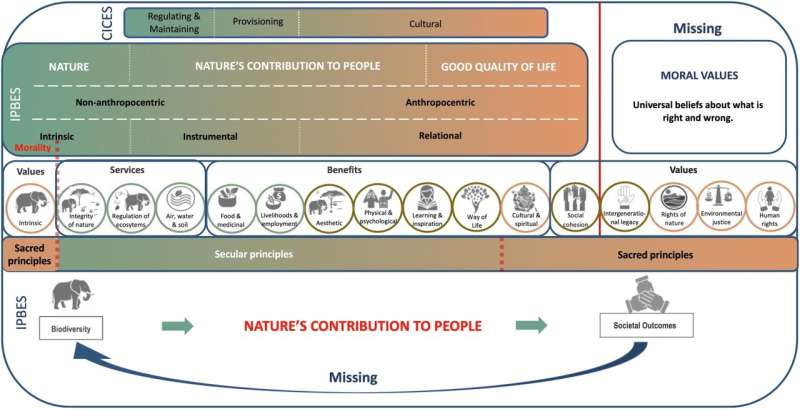Study reveals the true value of elephants

New research examining the services and benefits of elephants has revealed many values are often overlooked when deciding how they should be protected.
The collaboration between universities in England and South Africa, including the University of Portsmouth, found conservation strategies often have a narrow focus and tend to prioritize certain values of nature, such as economic or ecological, over moral ones.
When looking specifically at elephants, the study found financial benefits including ecotourism, trophy hunting and as a source of ivory or labor, often conflicts with the animal's ecological, cultural and spiritual contributions.
The authors argue not fully understanding or considering the value systems of all stakeholders involved in conservation, including local people, leads to social inequality, conflict and unsustainable strategies.
Study co-author Antoinette van de Water, from the University of KwaZulu-Natal in South Africa, said, "We chose to look at elephants as the case study because their conservation can be especially challenging and contentious.
"We're not saying economic contributions aren't important, but there's a lot of different values at play and they all need to be considered in conservation strategies if they are going to succeed."
The study also highlights conservation decision makers tend to take a single worldview when considering the value of nature.
Co-author Dr. Lucy Bates, from the University of Portsmouth, explained, "Whether it's economic, ecological, or social, a blanket approach to values can impact the success of a conservation strategy.
"Consider something like the ivory trade for example. International trade in ivory is illegal, but many southern African countries want to restart the trade leading to contention across the African continent. If you focus less on the potential economic value of ivory, and turn to other ways elephants can support communities, it can be a game-changer.
"On a smaller scale, you can also apply this framework to defining protected areas and what land could be made available to elephants. By listening to those living in these areas, you can get a clear understanding of how decisions will affect human life as well, and work out ways to resolve any issues."
The paper, published in Ecosystems Services, says nature's non-material benefits include recreation, inspiration, mental health, and social cohesion.
But it points out broader moral values, such as human rights, environmental justice, rights of nature and intergenerational legacy, also have a big part to play in the success of conservation.
The study recommends incorporating moral values related to biodiversity conservation into the valuation framework to create a positive loop between benefits to humans and to nature.
The researchers believe that this approach will help policymakers and managers have a better understanding of what elephants mean to people, why elephants are important in themselves, and what values and interests are at stake. It can also be applied to other species and ecosystems.
"What is really needed is a change of thinking," added Antoinette van de Water.
"Conservation policies are often based on price tags. Our pluralist valuation system provides solutions that are not based on economic gains or political status for the few, but instead on long-term common good and the goals and aspirations of societies."
More information: Antoinette van de Water et al, The value of elephants: A pluralist approach, Ecosystem Services (2022). DOI: 10.1016/j.ecoser.2022.101488. www.sciencedirect.com/science/ … ii/S2212041622000845
Provided by University of Portsmouth



















